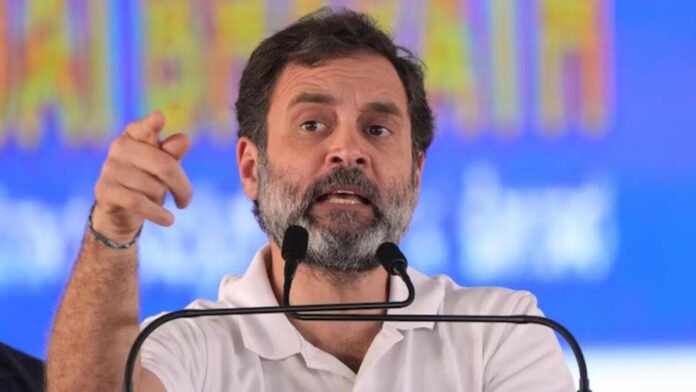In a significant move that could potentially reshape the landscape of affirmative action in India, Rahul Gandhi, the prominent leader of the Indian National Congress, recently announced the party’s intention to eliminate the 50% cap on reservation in education and employment. This bold initiative, if realized, has the potential to address longstanding concerns regarding equitable representation and social justice in the country.
The 50% cap on reservation, established by the Supreme Court in the landmark Mandal Commission case of 1992, has been a contentious issue in Indian politics for decades. While intended to prevent excessive reservation that could impede meritocracy, critics argue that the cap has limited opportunities for historically marginalized communities, particularly those belonging to Other Backward Classes (OBCs), Scheduled Castes (SCs), and Scheduled Tribes (STs).
Rahul Gandhi’s announcement signals a departure from the status quo and represents a bold step towards expanding access to opportunities for historically disadvantaged groups. In a statement addressing the issue, Gandhi emphasized the Congress party’s commitment to social justice and inclusivity, stating that the removal of the 50% cap would ensure greater representation for marginalized communities in education and employment sectors.
The proposal to eliminate the reservation cap has sparked intense debate across the political spectrum. Proponents argue that it is essential to address entrenched inequalities and empower historically marginalized communities, who continue to face systemic barriers to social and economic advancement. By removing the cap, they contend, the government can level the playing field and create a more equitable society.
However, critics express concerns about the potential consequences of such a policy shift. They warn that removing the reservation cap could lead to disproportionate representation and exacerbate tensions among different social groups. Moreover, they argue that it may undermine the principle of meritocracy and erode the quality of education and employment opportunities.
Despite the contentious nature of the proposal, Rahul Gandhi’s announcement reflects the Congress party’s broader agenda of social reform and inclusivity. The party has a long history of championing the rights of marginalized communities and has played a pivotal role in the enactment of various affirmative action policies, including reservations in education and employment.
The issue of reservation has always been a complex and sensitive topic in Indian politics, reflecting the country’s diverse socio-cultural landscape and legacy of historical injustices. While reservations have undoubtedly expanded opportunities for disadvantaged groups, they have also been subject to criticism and controversy.
The Congress party’s proposal to remove the 50% cap on reservation is likely to spark a renewed debate on the efficacy and fairness of affirmative action policies in India. It presents an opportunity for policymakers and civil society to engage in constructive dialogue and explore innovative solutions to address systemic inequalities.
At its core, the issue of reservation is not merely about quotas or percentages but about creating a more inclusive and equitable society. It requires a comprehensive approach that addresses the root causes of discrimination and ensures equal access to opportunities for all citizens, regardless of their caste, creed, or background.
As the Congress party prepares to push for the removal of the reservation cap, it faces formidable challenges and opposition from various quarters. However, the initiative also holds the potential to galvanize support from marginalized communities and progressive forces across the country.
In addition, Rahul Gandhi’s announcement regarding the Congress party’s intention to remove the 50% cap on reservation marks a significant development in Indian politics. It underscores the party’s commitment to social justice and inclusivity and opens up new avenues for addressing entrenched inequalities. While the proposal is bound to provoke heated debate and controversy, it also presents an opportunity to reevaluate and redefine India’s approach to affirmative action in the 21st century.

